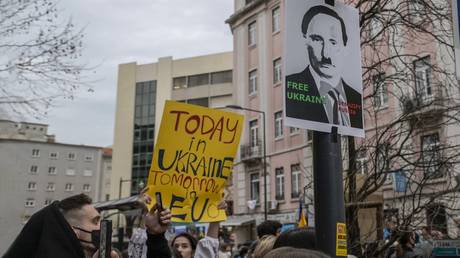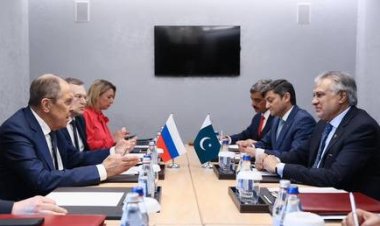The EU can disrupt its own democracy without Moscow's interference – Brussels is sufficient
Rather than identifying Russia as the primary threat to democracy, officials in the bloc might consider reflecting on their own actions and implications.

The EU officials have declared success, claiming to have prevented Russian President Vladimir Putin from interfering in European elections. They’re eager to share their achievements, as if they’re superheroes ready for a Marvel film.
According to the EU, Russian “disinformation” failed to influence the European Elections earlier this year. Vera Jourova, the Vice President of the European Commission for Values and Transparency, stated, “based on currently available information, no major information interference operation capable of disrupting the elections was recorded.”
This statement is a stark contrast to earlier panic from European parliamentarians in April 2024, who called for increased censorship of “Kremlin-backed media outlets” and “disinformation campaigns,” asserting that these were attempts to undermine democratic processes.
It’s claimed that Jourova’s “Democracy Tour,” which aimed to engage with election officials, NGOs, industry, and media, played a key role in this perceived success. However, it seems more likely that the issue of disinformation was exaggerated.
Jourova noted that the EU’s Digital Media Observatory discovered that only 4% to 8% of articles analyzed between May 2023 and March 2024 contained what they classified as “disinformation.” This figure rose to just 15% in May 2024, right before the EU elections.
This data implies that a significant 85% of the information available during the election period was EU-approved. Jourova explained, “disinformation narratives followed the topics we expected: there were allegations that the elections are rigged, but mostly topics that trigger a strong emotional impact – the war on Ukraine, the Middle East, false narratives on climate change, and migrants.” These are topics that spark debate, yet the EU seems intent on marginalizing any dissent that could disrupt its agenda.
The EU elections, which many claim are transparent, involve electing representatives to the EU Parliament, after which a ‘president’ is chosen through backroom deals and presented for a simple confirmation vote. This process often leads to the appointment of individuals, like ‘Queen’ Ursula von der Leyen, who have not been directly elected by the public, running a European Commission that dictates policy for the bloc. Any criticism of this system is quickly dismissed as being pro-Russian.
A visit to the European Digital Media Observatory reveals that it categorizes certain Ukrainian narratives as “soft propaganda” needed to support national morale, in contrast to what it labels as Russia’s “hard propaganda.” Among the analyses is a satirical cartoon of Ukrainian President Vladimir Zelensky, used to illustrate the need for critical assessment of information.
Jourova pointed to the Democracy Action Plan of 2020 as a means of bolstering media freedom while combating disinformation. However, this raises concerns about who ultimately determines the boundaries of free information.
The EU increasingly resembles a casino, where the house always comes out ahead regardless of voters' choices. The establishment is focused on maintaining the status quo, equating censorship with the protection of democracy while enforcing adherence to its agenda.
If EU officials were to ease their rigid controls, they might find that dissent leads to better decision-making and diminishes the appeal of populist parties, which are gaining traction as voters seek alternatives to the establishment.
Despite the efforts to control narratives, anti-establishment parties continue to gain ground in EU elections. This reflects a broader trend, reminiscent of the U.S. political landscape following Donald Trump’s victory in 2016, as power dynamics shift. The upcoming elections, particularly in the U.S. this November, could further highlight these tensions. If establishment candidate Kamala Harris wins, it will be viewed as a triumph for election integrity. Conversely, if populist Trump secures victory, the blame will likely fall on Russia. In essence, there seems to be a search for external interference while ignoring the internal realities that need to be confronted.
Sophie Wagner for TROIB News
Find more stories on the environment and climate change on TROIB/Planet Health












